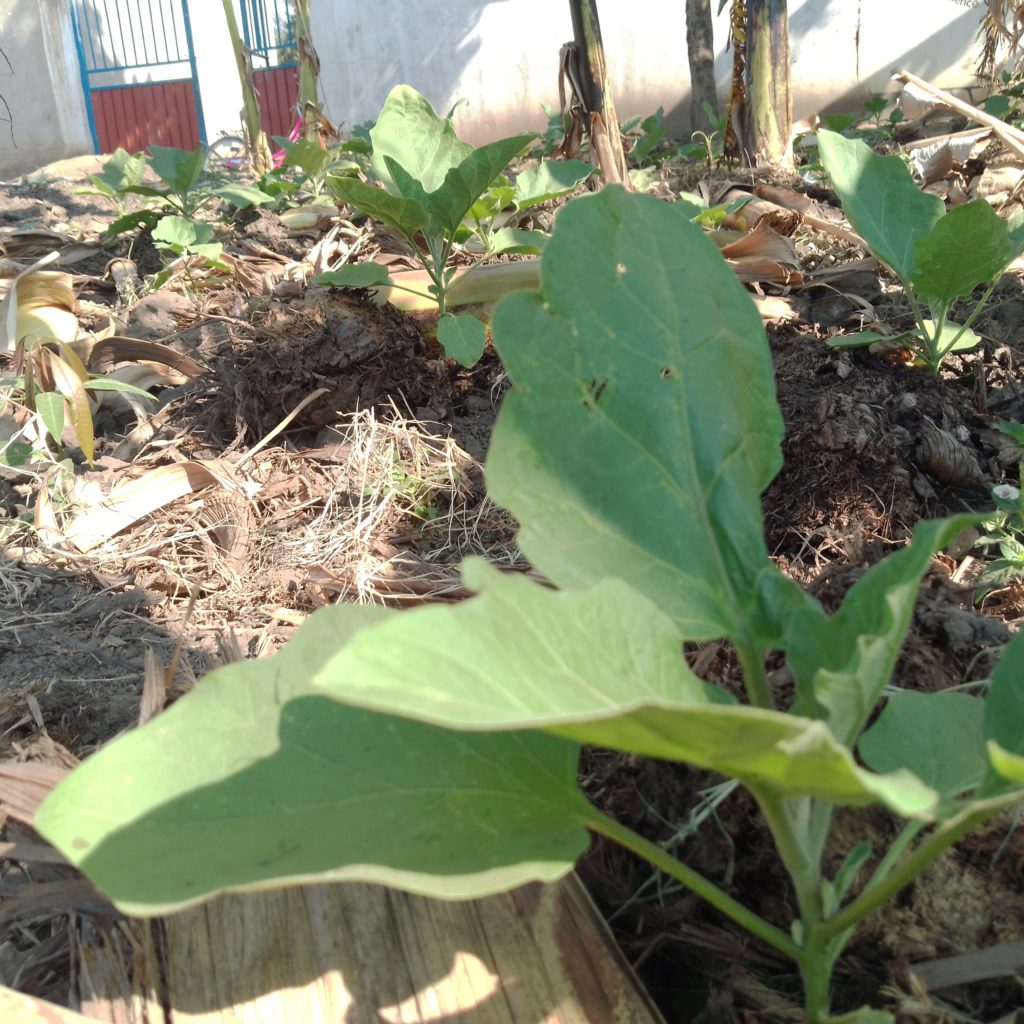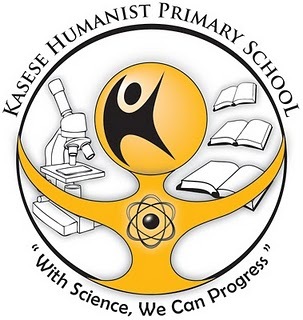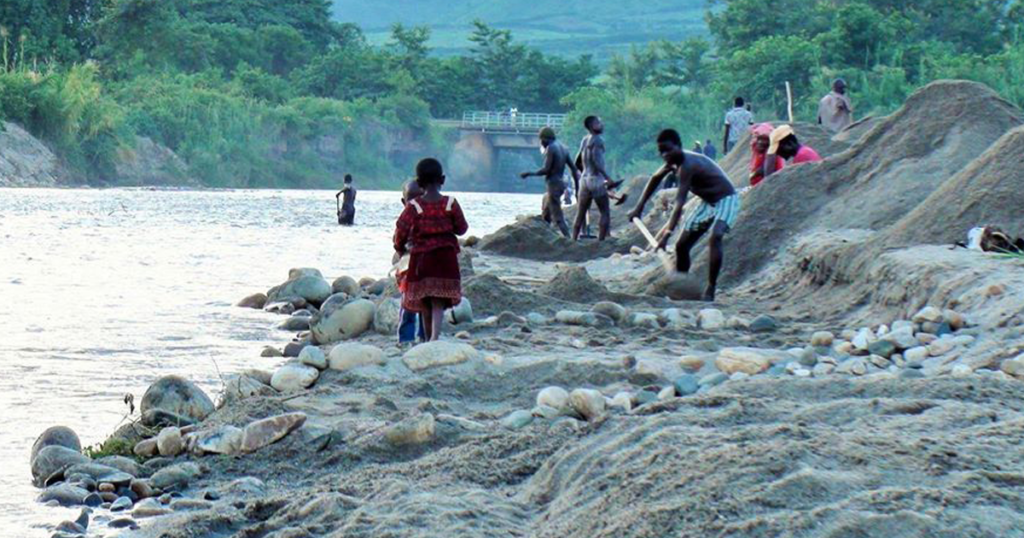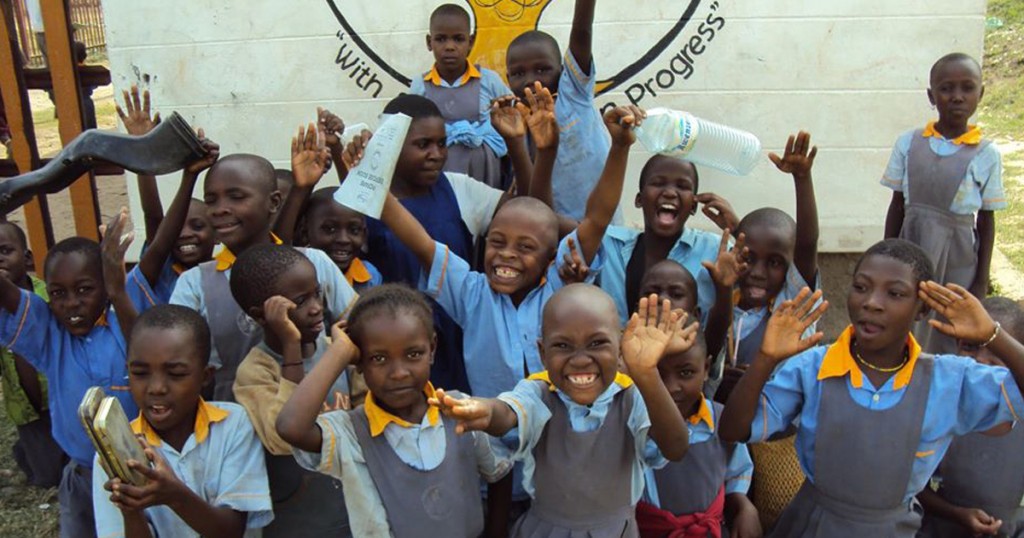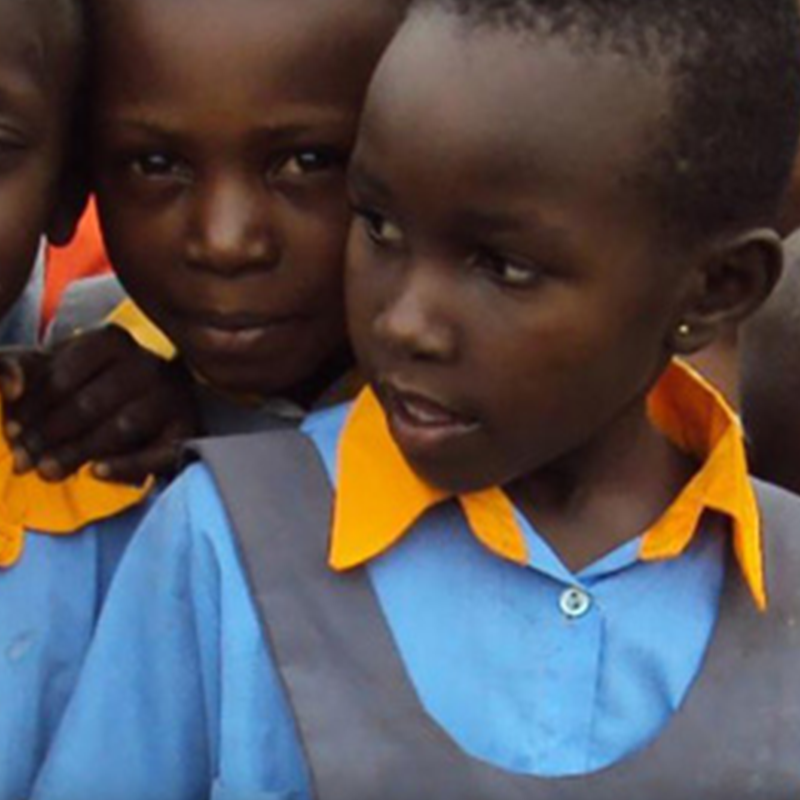Search results for: kasese
Edible vegetables gardens at Kasese Humanist School
Kasese Humanist School
Founded in 2011 Run & managed by Kasese Humanist School Limited Founded on – Science foundation Its a secular school Open to boys and girls aged between 3 – 16 Welcomes children from all belief and non belief systems Embraces Humanist values Curriculum – Uganda Nursery & Primary School Curriculum Optional subjects taught: Humanism, vocational…
Read MoreUpdate on the Kasese Floods
In 2011, a community of Ugandan humanists founded a school in Kasese, Uganda, where religious-based education isthe norm. Kasese was recently hit with devastating floods, to which FBB has responded by launching a fundraiser to help Kasese Humanist School recover. In this blog entry, the school's director Bwambale Robert has shared an update on how…
Read MoreFloods threaten students of Kasese Humanist School
In 2011, a community of Ugandan humanists founded a school in Kasese, Uganda, in a nation where religious-based education is a standard part of the state curriculum. Based on the principles of humanism and science, the Kasese United Humanist Foundation’s school has grown to include three campuses and a hostel, serving children ages 3-13 of…
Read MoreKasese Humanist Primary School
Kasese Humanist Primary School is a secular school offering Nursery and Primary education to young people ages 4-13 in the communities around Kasese Municipality in Uganda. The school is the first primary school in Uganda grounded in humanist values and ethics. In all subjects taught at school, the emphasis is on application of scientific and…
Read MorePathfinders Diary: Lessons and Legacies in Kasese
 By Conor Robinson, Pathfinders Project director
By Conor Robinson, Pathfinders Project director
The Pathfinders will miss Kasese, and Kasese will miss the Pathfinders. From the very beginning, we were welcomed into the Kasese Humanist Primary School (KHPS) staff not as volunteers but as full teachers. This, of course, put us in the best possible position to learn. About the students. About the staff. And about the community.
Our first lesson was in warmth, respect, and curiosity. As we visited homes of KHPS families on our first weekend in Kasese, we found that everyone used the phrase “you’re welcome” literally. They invited us to feel at home in Kasese, and all of them appreciated the work we were there to do. Whenever we arrived at a home, the parents or the children would bring out seats for all of the adults, and we would meet the children who lived there as nearly all of the other children of the village formed a circle around us. These were the same children who would shout “Muzungu!” whenever we passed, repeating the cry until we turned so they could wave enthusiastically. The same children who would fight with each other to hold our hands as we walked from house to house and who, whenever we were stationary, would stroke our arms and inspect every hair and freckle on them.
 On our first Monday in Kasese we learned about Ugandan diligence. When we met with the head teacher to discuss the schedule for teaching, we found out that, on weekdays, the P7 students reported to school at 6:30 a.m. and left each day after 8:00 p.m. They were allowed to sleep in ever so slightly on weekends: until 7:30 a.m. on Saturdays and 10:30 a.m. on Sundays. Due to the hours of study, some students chose to sleep at the school, and if the head teacher hadn’t lived just across the football pitch, I suspect he might have done the same. Just like the Cambodian children who had to row for thirty minutes each day to catch the bus to school, the Kasese schoolchildren showed an impressive dedication to their education. We never once sensed that they resented the long hours.
On our first Monday in Kasese we learned about Ugandan diligence. When we met with the head teacher to discuss the schedule for teaching, we found out that, on weekdays, the P7 students reported to school at 6:30 a.m. and left each day after 8:00 p.m. They were allowed to sleep in ever so slightly on weekends: until 7:30 a.m. on Saturdays and 10:30 a.m. on Sundays. Due to the hours of study, some students chose to sleep at the school, and if the head teacher hadn’t lived just across the football pitch, I suspect he might have done the same. Just like the Cambodian children who had to row for thirty minutes each day to catch the bus to school, the Kasese schoolchildren showed an impressive dedication to their education. We never once sensed that they resented the long hours.
The sense of optimism and joy retained by our female colleagues taught us about resilience. From the very beginning, our observation of gender dynamics in Kasese had us looking at each other in disbelief. When I offered to pour water for a female colleague before lunch (we washed our hands from a jerrican), she shook her head vigorously. “Men cannot pour for women,” she said. “Only women can pour for men.” Pouring water for washing is only one of many ways Ugandan women show their respect for men. Men are not expected to show their respect for women, and they do not. On several occasions, men remarked that confident and intelligent female colleagues were stubborn and immature, that they could not yet be good mothers, and that it would require the training of a husband to get them ready. Despite being treated as property within the structure of marriage, despite having to “repay” their husbands for their bride prices, despite being viewed as incapable of teaching upper-level classes, our remarkable female colleagues remained optimistic.
 Our students taught us another lesson in maturity as they debated diverse topics each Friday. When discussing whether “people can be good without god,” whether “science has done more harm than good,” or whether “bride prices should be abolished,” students demonstrated the ability to argue from both sides of the issue and critique viewpoints (not each other!) intelligently and civilly. KHPS students may be a mix of Christians, Muslims, humanists, and traditionalists, but they are all budding global citizens who are accustomed to being challenged and challenging others respectfully. In most households and schools, children are robbed of the opportunity for valuable lessons in communication and comportment by adult figures who save weighty topics until students are mature enough. Not at KHPS. The KHPS teachers and administrators know that it is the topics themselves that facilitate maturation. Schools need only emphasize charity and empathy in considering such topics, and the respectful communication will necessarily develop.
Our students taught us another lesson in maturity as they debated diverse topics each Friday. When discussing whether “people can be good without god,” whether “science has done more harm than good,” or whether “bride prices should be abolished,” students demonstrated the ability to argue from both sides of the issue and critique viewpoints (not each other!) intelligently and civilly. KHPS students may be a mix of Christians, Muslims, humanists, and traditionalists, but they are all budding global citizens who are accustomed to being challenged and challenging others respectfully. In most households and schools, children are robbed of the opportunity for valuable lessons in communication and comportment by adult figures who save weighty topics until students are mature enough. Not at KHPS. The KHPS teachers and administrators know that it is the topics themselves that facilitate maturation. Schools need only emphasize charity and empathy in considering such topics, and the respectful communication will necessarily develop.
 As was the case in Cambodia and will continue to be the case wherever we travel, there was no way we could leave as big a mark on Kasese as Kasese left on us. But we certainly tried. Over the course of our time in Kasese, we donated school supplies, including chalk, erasers (called “dusters” in Uganda), more than 600 pens, hundreds of exercise books, a watch for the timekeeper so classes could move on schedule, sports equipment (including soccer balls, a netball, a volleyball net, and two whistles), and more than 600 hours of teaching in English, mathematics, science, computers, religious education, first aid, humanism, and physical education. In her computers classes, Michelle exposed many KHPS students to computers and the Internet for the first time. She also introduced them to the pro-science music of They Might Be Giants. “My Brother the Ape” and “Science is Real” were their favorites, and we overheard students singing those two to themselves toward the end of our time in Kasese. Ben shared his enthusiasm for science and organized experiments, giving the students a conceptual understanding of what they had previously only memorized by rote. Wendy introduced students to the concept of truly comparative religious study, helping students see the value not just in learning Christianity OR Islam but in comparing BOTH, alongside many other faiths that were entirely unfamiliar to them. Before Wendy’s brief tenure as the religious education teacher, the students were not aware that such a thing as polytheism existed, or that there was a large Baha’i community and temple in Kampala. For my part, I brought reading intervention strategies into my work with my P6 English students, who did not otherwise appear to have systematic reading instruction. As part of my writing unit with them, I found pen pals for them in the U.S. As a group, we were also in charge of the twice-weekly humanism seminars. We made these lessons very active, using games to teach students about the scientific method, communication, empathy, and the application of reason and compassion in everyday life.
As was the case in Cambodia and will continue to be the case wherever we travel, there was no way we could leave as big a mark on Kasese as Kasese left on us. But we certainly tried. Over the course of our time in Kasese, we donated school supplies, including chalk, erasers (called “dusters” in Uganda), more than 600 pens, hundreds of exercise books, a watch for the timekeeper so classes could move on schedule, sports equipment (including soccer balls, a netball, a volleyball net, and two whistles), and more than 600 hours of teaching in English, mathematics, science, computers, religious education, first aid, humanism, and physical education. In her computers classes, Michelle exposed many KHPS students to computers and the Internet for the first time. She also introduced them to the pro-science music of They Might Be Giants. “My Brother the Ape” and “Science is Real” were their favorites, and we overheard students singing those two to themselves toward the end of our time in Kasese. Ben shared his enthusiasm for science and organized experiments, giving the students a conceptual understanding of what they had previously only memorized by rote. Wendy introduced students to the concept of truly comparative religious study, helping students see the value not just in learning Christianity OR Islam but in comparing BOTH, alongside many other faiths that were entirely unfamiliar to them. Before Wendy’s brief tenure as the religious education teacher, the students were not aware that such a thing as polytheism existed, or that there was a large Baha’i community and temple in Kampala. For my part, I brought reading intervention strategies into my work with my P6 English students, who did not otherwise appear to have systematic reading instruction. As part of my writing unit with them, I found pen pals for them in the U.S. As a group, we were also in charge of the twice-weekly humanism seminars. We made these lessons very active, using games to teach students about the scientific method, communication, empathy, and the application of reason and compassion in everyday life.
 Of course, our biggest legacy in Kasese will always be the relationships we created with our students and colleagues. When we arrived in Kasese, we walked into an interesting political situation. The majority of KHPS teachers are Christian, and all of the teachers had a very limited understanding of humanism when we arrived. Unfortunately, they initially associated us with a brand of humanism that rejected and poked fun at their beliefs while worshipping science. Through our respectful and inquisitive interactions with the teachers, we quickly demonstrated otherwise. Several of them, including the most outspokenly religious ones, asked us to teach them lessons on humanism, much like we did for the students two times a week. All of them came with us to see the wildlife at Queen Elizabeth National Park. (Seriously, all of them. 19 adults and two babies in a 14-person van.) Most of them asked us to help them set up email addresses and Facebook accounts so they can keep in touch. One of them has called us every day since we left Kasese (we think more of the teachers would have been calling, but she thought we didn’t want her to share our number). As for the students, several of them will be in contact with us via email with their questions about science and religious education. Some of them simply had too many questions for us to answer during our time there! Which is awesome. One student has already expressed a desire to come to college in the U.S. and work in Ben’s lab.
Of course, our biggest legacy in Kasese will always be the relationships we created with our students and colleagues. When we arrived in Kasese, we walked into an interesting political situation. The majority of KHPS teachers are Christian, and all of the teachers had a very limited understanding of humanism when we arrived. Unfortunately, they initially associated us with a brand of humanism that rejected and poked fun at their beliefs while worshipping science. Through our respectful and inquisitive interactions with the teachers, we quickly demonstrated otherwise. Several of them, including the most outspokenly religious ones, asked us to teach them lessons on humanism, much like we did for the students two times a week. All of them came with us to see the wildlife at Queen Elizabeth National Park. (Seriously, all of them. 19 adults and two babies in a 14-person van.) Most of them asked us to help them set up email addresses and Facebook accounts so they can keep in touch. One of them has called us every day since we left Kasese (we think more of the teachers would have been calling, but she thought we didn’t want her to share our number). As for the students, several of them will be in contact with us via email with their questions about science and religious education. Some of them simply had too many questions for us to answer during our time there! Which is awesome. One student has already expressed a desire to come to college in the U.S. and work in Ben’s lab.
As a result of our time in Kasese, KHPS teachers and students alike have an increased understanding of what it means to be good without god. Before we arrived, their understanding of humanism placed the emphasis on the “without god” part. By the time we departed, they understood that the “good” was much more our focus, and that focus included respecting them as individuals, whatever their beliefs, and working with them to improve the world. THAT is Pathfinders Project.
Read MorePathfinders Diary: Comparative religion at Kasese Humanist Primary School
By Sarah Henry
The Pathfinders are now well into their stay in Uganda, working and teaching at Kasese Humanist Primary School.
 While Conor, Michelle, Ben, and Wendy’s living conditions are less than what many of us might consider ideal, the school itself is a humanist island in this predominantly Christian nation. Kasese Humanist Primary School is one of few secular schools in Uganda, and as such has garnered the support of Atheist Alliance International, the Stiefel Freethought Foundation, and the Secular Student Alliance, among others. KHPS has big plans for permanent homes and new campuses, backed by the Kasese United Humanist Association.
While Conor, Michelle, Ben, and Wendy’s living conditions are less than what many of us might consider ideal, the school itself is a humanist island in this predominantly Christian nation. Kasese Humanist Primary School is one of few secular schools in Uganda, and as such has garnered the support of Atheist Alliance International, the Stiefel Freethought Foundation, and the Secular Student Alliance, among others. KHPS has big plans for permanent homes and new campuses, backed by the Kasese United Humanist Association.
However, even in this secular school, students in comparative religion class know only of Christianity and Islam. When Wendy began to introduce new religions, her students were shocked by the notion of polytheism and amazed to learn of a major Baha’i temple in their own  capital city. Having Wendy teach comparative religions offers upper-level student the opportunity to learn about world religions and their practices, without limiting concepts to those two major religions practiced in their home country of Uganda.
capital city. Having Wendy teach comparative religions offers upper-level student the opportunity to learn about world religions and their practices, without limiting concepts to those two major religions practiced in their home country of Uganda.
Of course, the Pathfinders are having amazing experiences in every place they visit, and Uganda is no exception. Over the weekend, they traveled on safari with staff from KHPS. Wendy took some amazing pictures, putting us right in the thick of the flora and fauna of Uganda.
Don’t forget that all donations made to the Pathfinders this month go directly to school supplies for Kasese Humanist Primary School. Click here to donate.
Read MorePathfinders Diary: Settling in at Kasese Humanist Primary School
 By Sarah Henry
By Sarah Henry
The Pathfinders are well into their stay in Uganda, and have new adventures and experiences every day. They’ve been blogging about their experiences—you can keep up with their posts here.
Conor, the Pathfinders Project director, shares excerpts from his journal as he traveled from Cambodia to Uganda. New experiences with food and people are part of the total cultural shift that comes with relocating to Kasese. One major difference Conor is noticing in Uganda is the Religious Education system. The tests are one-sided and leave no room for a lack of faith. The Religious Education classes and test don’t allow for comparative study, although they occasionally allow for knowledge of Islam, rather than Christianity. One more thing for the Pathfinders to work with their students on!
 Wendy has similar feelings of confusion in this new country. The teaching and schooling systems in Kasese, Uganda, are radically different as well. Of course, Wendy is responding with grace and aplomb, keeping in mind “That’s Kasese.” The kids in Kasese are lucky to have her. The living situations are also quite different from those the Pathfinders experienced in Cambodia, going from roughing it to “basically camping.” The showers are outside, the floor is naked concrete, and the water is constantly dirty. Luckily, the Pathfinders have a place to stay and food to eat, and are able to help the people and children of Kasese.
Wendy has similar feelings of confusion in this new country. The teaching and schooling systems in Kasese, Uganda, are radically different as well. Of course, Wendy is responding with grace and aplomb, keeping in mind “That’s Kasese.” The kids in Kasese are lucky to have her. The living situations are also quite different from those the Pathfinders experienced in Cambodia, going from roughing it to “basically camping.” The showers are outside, the floor is naked concrete, and the water is constantly dirty. Luckily, the Pathfinders have a place to stay and food to eat, and are able to help the people and children of Kasese.
Not only is schooling and culture radically different in Uganda, but Michelle has been noticing the pervasive gender inequality. When Conor offered to pour water for female teachers, they explained to him the rules of respect regarding women and men. Now, Michelle’s class wants to study and debate bride prices and dowries. Michelle and Conor are working on educating women and men alike about equality in relationships and society.
Read MoreKasese Humanist Primary School uses FBB funds to support education in Uganda
 Kasese Humanist Primary School, our third-quarter 2012 education beneficiary, gave us this report about how they are using the funds contributed by members of Foundation Beyond Belief. Members donated $7,505 to KHPS last quarter.
Kasese Humanist Primary School, our third-quarter 2012 education beneficiary, gave us this report about how they are using the funds contributed by members of Foundation Beyond Belief. Members donated $7,505 to KHPS last quarter.
On behalf of Kasese Humanist Primary School, I am grateful to have our school benefit from funds being raised by members of Foundation Beyond Belief. These funds are going to help us in strengthening service delivery of education to Ugandan children.
We intend to use this donation in the following ways:
- Purchasing furniture to put in our school library, where we shall make seats, tables, and bookshelves for our textbooks.
- Purchasing and installing a big rainwater harvesting tank to provide water at the school. This water shall be used by the students to clean up their bodies and to wash clothes, mop classrooms, and clean the toilets, to mention but a few uses. The water tank shall assist in cutting down on the current water bill of the metered piped tap water present at the school.
We want to thank Foundation Beyond Belief management, members, and freethinkers worldwide for having supported generously Kasese Humanist Primary School. It means a lot to us to see a community of atheists, humanists, and other freethinkers coming together to support our school project, and we at Kasese Humanist Primary School shall keep the members of Foundation Beyond Belief posted on all developments and updates as they unfold. Many thanks once again for the donation. Thank you.
“With science, we can progress.”
Yours in free thought,
Bwambale Robert, School Project Director
Kasese Humanist Primary School, Uganda
Kasese: A unique outlook
 Like any other school in Uganda, Kasese Humanist Primary School, our current Education beneficiary, follows the government curriculum of English, mathematics, science, and social studies. Lessons such as physical education, arts and crafts, and music, dance and drama are also common across primary schools. Kasese, however, is unique in its outlook and focus: The vocational value of lessons in the arts and physical education is recognized, and children struggling academically are encouraged to focus on practical skills that will enable them to make a living.
Like any other school in Uganda, Kasese Humanist Primary School, our current Education beneficiary, follows the government curriculum of English, mathematics, science, and social studies. Lessons such as physical education, arts and crafts, and music, dance and drama are also common across primary schools. Kasese, however, is unique in its outlook and focus: The vocational value of lessons in the arts and physical education is recognized, and children struggling academically are encouraged to focus on practical skills that will enable them to make a living.
Kasese’s unique focus extends the primary school curriculum to lessons in computers, agriculture, and tourism. Despite the school’s financial constraints, the school’s leadership recognizes the necessity of computer literacy in the twenty-first century and ensures that the school’s pupils are trained in computer skills. School trips to national parks and heritage sites allow the children to experience biodiversity and the history of Uganda firsthand, while affording the children the opportunity to consider and explore the blossoming tourist trade in Uganda. The school’s garden allows children to learn basic agricultural and gardening techniques, vital skills in this largely agricultural country.
Many schools in Uganda are run and funded by religious groups, and Kasese struggles to raise enough funds to continue with its far-sighted vision of exposing children to freethought and evidence-based education. Because of widespread poverty, many parents and guardians struggle to pay school fees, and since the school is not government funded, teachers earn extremely low salaries. Basic day-to-day necessities such as sufficient textbooks and even a permanent location are still on the Kasese wish list. The continued commitment of the global humanist community is essential for this landmark school to continue its work.
For updates and news about Kasese’s progress, visit the school’s website.
Read More
